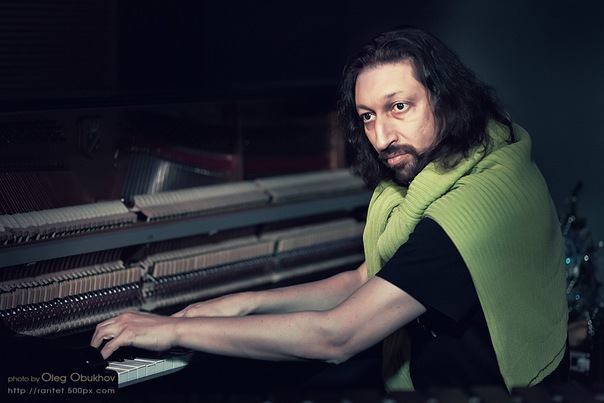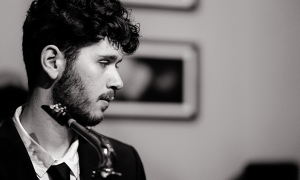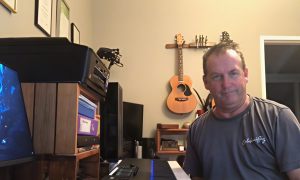Home » Jazz Articles » Take Five With... » Take Five With Roman Stolyar
Take Five With Roman Stolyar

Born in Novosibirsk, Siberia, Russia. Raised in a family of engineers. Started studying piano at the age of five but rejected to continue it at the age of twelve. Went back to music being a student of Novosibirsk Technical University; ultimately, decided to quit nuclear physics. Graduated from Novosibirsk College of Music as jazz pianist; then, graduated from Novosibirsk State Conservatory as a composer. Combines improvised performance with composing chamber and orchestral music. Teaches at Novosibirsk College of Music.
Instrument(s):
Piano, melodica, recorders, synthesizers, and live electronics.
I knew I wanted to be a musician when...
...when I realized that nuclear physics was too boring for me, while music was a sort of magic I would study to make. I was 19 years old at the time.
Your sound and approach to music:
Spontaneity based on knowledge and experience. This is my credo in music and life.
Your teaching approach:
I prefer to teach students how to be open to any new sound and any new stream in music rather than how to play proper notes and phrases. It's much more important to be creative and widely open-minded than to follow some narrow stream while denying other streams.
Your dream band:
Well, I don't like to have a constant band—I always tend to play with improvisers I have never met before. This is one of the ways I keep my playing fresh.
Your favorite recording in your discography and why?
Just some of them: Ballads, by Derek Bailey—an excellent example of how to improvise on jazz standards without following changes. Dartington Concert, by Keith Tippett—a very powerful solo performance. Crossing, by Oregon—a good combination of the best achievements of jazz, classical and ethnic music. Actually, there are many more, I can't name just one.
Did you know...
...that I exist? Actually, any Siberian jazz musicians could ask this question. Pity, but Russian jazz is still terra incognita for Western people. If you know some Russian jazzmen, they are probably from Moscow or from St. Petersburg. But, trust me, there are many more cities in Russia.
How would you describe the state of jazz today?
Stagnating.
What are some of the essential requirements to keep jazz alive and growing?
I think the appearance of jazz stimulated the interest in improvised music in Western society, and the essence of jazz is improvisation. Now, to prevent conservatism and stagnation, jazz should be open to any new influence, wherever it comes from. Jazz musicians shouldn't be afraid to give up swing, turnarounds and walking bass for the sake of the emphasis of creativity and freedom in improvisation. Definitely, if they give up these things, it would be the music different from old good jazz we all know—but that's OK by me.
Also, we have to admit and accept that jazz today is no longer exclusively American music. We have to accept that jazz is multicultural music, and every culture contributes into jazz and changes its face. But, as jazz musicians, we shouldn't afraid of these changes.
If I weren't a jazz musician, I would be a:
Composer. Actually, I am, too.
Photo Credit
Oleg Obukhov
Tags
PREVIOUS / NEXT
Support All About Jazz
 All About Jazz has been a pillar of jazz since 1995, championing it as an art form and, more importantly, supporting the musicians who make it. Our enduring commitment has made "AAJ" one of the most culturally important websites of its kind, read by hundreds of thousands of fans, musicians and industry figures every month.
All About Jazz has been a pillar of jazz since 1995, championing it as an art form and, more importantly, supporting the musicians who make it. Our enduring commitment has made "AAJ" one of the most culturally important websites of its kind, read by hundreds of thousands of fans, musicians and industry figures every month.

























